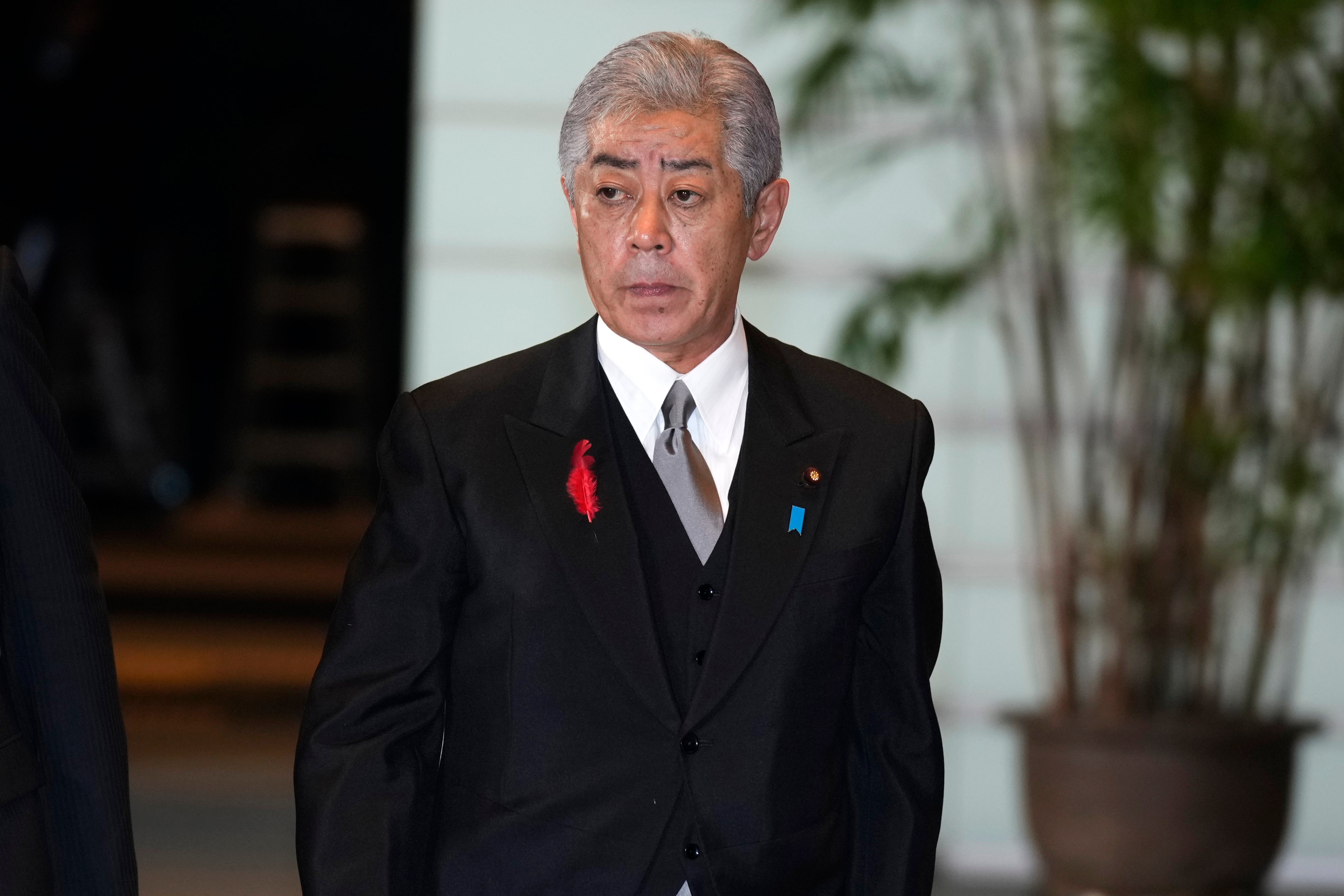Japan rows back on new prime minister’s plan for ‘Asian Nato’
Japanese leadership in damage control amid pushback over proposal, which has been described as premature by Washington
Japan is not considering setting up an “Asian Nato” in the near future, its foreign minister says, despite it being one of the most talked-about campaign pitches from new prime minister Shigeru Ishiba.
Mr Ishiba, who entered office on Tuesday, has called for the creation of a Pacific alliance based an obligation to defend other members if they are invaded, saying this would be the most effective deterrent against Japan’s nuclear-armed neighbours China, Russia and North Korea.
But Japan’s closest allies, including within the existing Quad grouping, have expressed scepticism over the idea and it was described as “premature” by the Biden administration last week.
Mr Ishiba’s new foreign minister Takeshi Iwaya appeared to downplay the proposal, telling a press conference on Wednesday that “it’s one idea for the future" among a range of efforts designed to foster better relations with like-minded countries and improve regional security.
"It’s difficult to immediately set up a mechanism that would impose mutual defence obligations in Asia, so it’s more of a vision for the future," he said.
It came after Indian foreign minister Subrahmanyam Jaishankar – another Quad nation – said South Asian nations did not share this vision.

“We don’t have that kind of strategic architecture in mind,” Mr Jaishankar said at an event at Washington’s Carnegie Endowment for International Peace, adding that India had never been a treaty ally of any other country.
“We have … a different history and different way of approaching” said Mr Jaishankar, who met meet US secretary of state Antony Blinken on Tuesday and spoke at the at the UN General Assembly in New York last week.
The United States has also quietly brushed off the idea. It was too early for such talk, Daniel Kritenbrink, the US assistant secretary of state for East Asia and the Pacific, said last month.
Asked if an Asian Nato would be designed as a defence against China, Mr Iwaya said such a framework would not be aimed at any specific country.
"The best way would be for a defence and security co-operation relationship that spans the Indo-Pacific without excluding any specific nation," Mr Iwaya said.

The new defence minister, Gen Nakatani, told a separate press conference that Mr Ishiba had not asked his ministry to pursue a proposal to set up an Asian equivalent of Nato.
Nato was set up in 1949 by 12 founding nations, including the US, UK, Canada, France and Portugal, and the bloc now has 32 member countries across Europe and North America. Its primary aim has been to ensure collective defence and security among member states in response to threats, perhaps most notably from the Soviet Union during the Cold War.
The bloc’s members are obliged to come to the support of any one member in case it comes under attack – no obligation exists to support another member’s aggression, however. Despite the inherently defensive nature of the bloc, Russia has objected to Nato’s eastward expansion, calling it an existential threat to Moscow.
Writing in a paper to the Hudson Institute think tank in September, Mr Ishiba argued for locking Washington into an “Asian Nato” as a way to deter China from using military force in Asia.
After taking office on Tuesday, he said he would seek deeper ties with allies to counter the gravest security threat that the country is facing since the Second World War.
Mr Ishiba succeeded in the ruling Liberal Democratic Party’s (LDP) presidential election at his fifth and final attempt in a party vote on Friday. The former defence minister, who is known to have a taste for curry and anime, succeeded outgoing leader Fumio Kishida.
Apart from his support for a so-called Asian Nato, Mr Ishiba is a supporter of Taiwan’s democracy and has pushed for more diversity and gender equality domestically.
Join our commenting forum
Join thought-provoking conversations, follow other Independent readers and see their replies
Comments
Bookmark popover
Removed from bookmarks